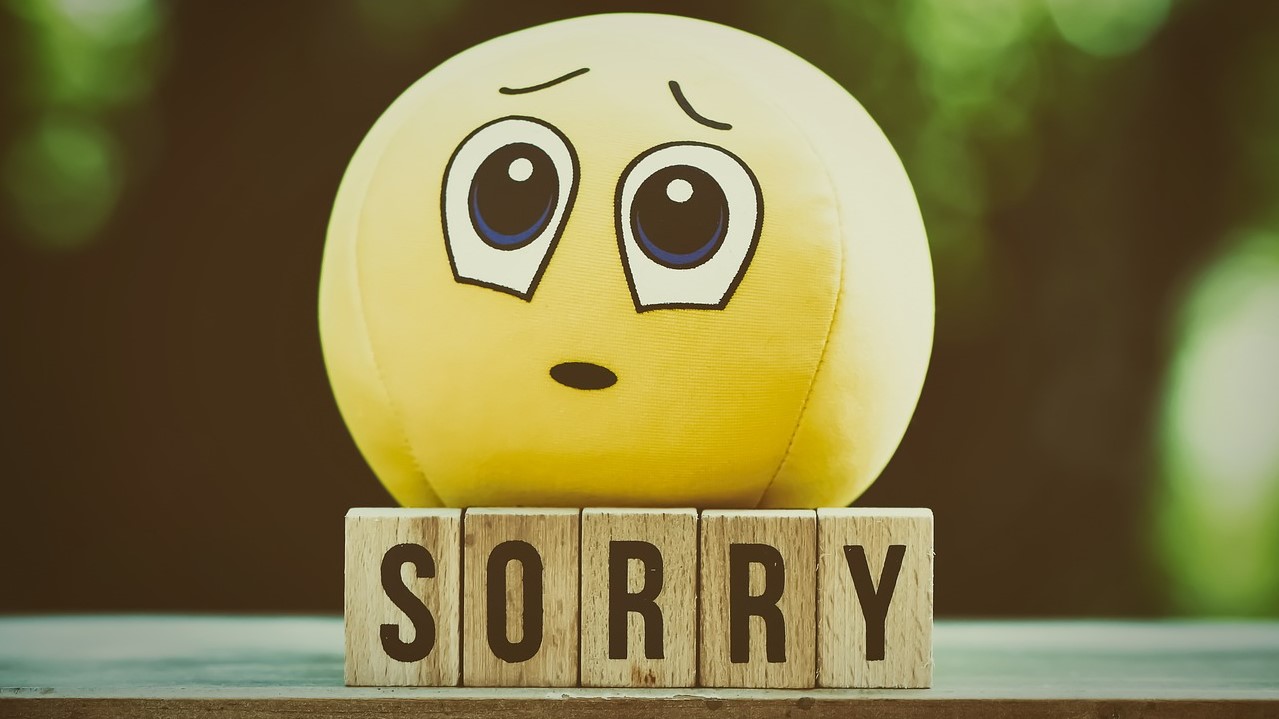We have all been there. Almost all of us have moments when we cannot forgive ourselves. You spilled a secret about your friend to someone, forgot to send an anniversary gift to your parents, intentionally hurt someone—anything can torment your mind for days or even months. If your past or guilt feelings taunt you, understand that you haven’t forgiven yourself yet. And no matter what you did, it is time to forgive yourself because only forgiveness can give you peace of mind and the energy to move forward. Why do you hold on to those negative events when the whole world has already forgotten them? Now, are you thinking about how to forgive yourself? Once you have analysed what you are feeling, accept that to err is human, and learn that everyone makes mistakes. Then, you will start feeling how forgiving yourself can do wonders for your mind.
Why should you forgive yourself?
Holding on to guilty feelings and negative events can only harm your mind and well-being. It will make you feel angry, resentful, guilty, upset and devastated. It is important to correct your errors, move from your guilty feelings, and grow from your negative thoughts. For that, you need the courage to forgive yourself. Whether you have made a minor mistake or one that can impact your life, learn from that wrongdoing and take steps to forgive yourself and move on in life.
Tips for self-forgiveness
Learn why self-forgiveness is important and explore some tips that can help you forgive yourself and become better.
Acknowledge the mistake
If you are confused about how to forgive yourself, the first thing you need to do is acknowledge the mistake. When you are struggling to let things go off and move forward, give voice to your feelings and express your thoughts to reduce your stress and free yourself from some mental trauma.
Consider your mistake as a learning experience
Everyone makes some kind of wrongdoing or mistake that they feel bad about. Regretting past mistakes for a long time is not good for your mental health. You should think of your mistake as a learning experience and learn from it. Falling into self-hatred, self-pity, and rumination can damage your self-esteem and urge to move forward. To forgive yourself, you need to analyse your past regretful behaviour or activities and why you feel guilty. Think of the steps you can take to prevent such behaviour in the future. You might have messed up, but consider it a learning experience that can help you make better choices in life.
Take responsibility
Taking responsibility for your actions is another important step to forgiving yourself. More than just putting your past behind you, forgiveness is accepting responsibility for your actions. Rather than making excuses or justifying your wrong actions, you should be courageous enough to accept what you have done. By taking responsibility for your misbehaviour, you seem acceptable to the person you hurt and are freed from the feeling of guilt, negative thoughts, and over-repentance.
Ask for forgiveness
If you did something that hurt someone’s feelings, ask for forgiveness. By asking for forgiveness from the other party, they know that you feel sorry for what you did. So, if you did something really bad to someone, be brave enough to open up and take responsibility for your action. Furthermore, ask for their forgiveness. No matter whether the other person will forgive you or not, an act of seeking forgiveness can help you stop torturing yourself.
Avoid overthinking your mistake
It is quite humane to spend time and energy overthinking our mistakes. Though the natural processing of what we did is normal, replaying our mistakes repeatedly will only make our minds worse. This won’t let you forgive yourself but will make you think of yourself as a bad person. A habit of rumination can be harmful to your mental health, as it can exacerbate depression as well as damage your ability to process emotions clearly. It can also make you feel isolated and actually drive people away. So, the best way to avoid this is to take a short walk or take some deep breaths to distract yourself from your negative thought patterns.
Don’t let others bring you down
Even after apologising to the person you hurt, it is still likely that you will get embarrassed by the behaviour or actions of others. You may feel uncomfortable because you will be concerned about how other people feel about you. Keep in mind that other people’s thoughts and other people’s judgements and viewpoints can only put additional weight on you. So, in such situations, don’t let others bring you down.
Write yourself an apology
Writing yourself an apology is a better solution to making you forgive yourself. Rather than beating yourself with the feeling of guilt and negative emotions, pen down how you offered repentance and found the strength to accept your mistake. Writing how you feel post-incident without lashing yourself with self-condemnation can help you heal yourself. For relief. If you are comfortable reading it aloud, do it.
Focus on your emotions
Focusing on your emotions is one of the crucial steps in finding out how to forgive yourself. You must identify and deal with your emotions before you can move forward. Let yourself acknowledge and welcome the emotions and feelings that are happening in you and accept that it is okay to experience such reactions.
Talk to your inner critic
Like how writing helps to understand and pour down your emotions, having a conversion with your inner self can aid you in fixing the issue easily. Find some time to talk with your inner critic and recognise the negative thoughts that are hindering you from forgiving yourself. Talking with your inner critic also helps to identify your strengths and weaknesses, which in turn helps to boost your self-confidence and self-acceptance when you are feeling down about the mistake you made.
Be kind to yourself
It’s time to practise self-kindness and compassion if you find yourself criticising someone after a mistake or some bad experience. Being gentle and compassionate with oneself is the only way to start on the path of forgiveness. This requires time, perseverance, and a reminder to yourself that you deserve some mercy.
Take your own advice
It is easier for us to advise someone to do something, but it may not be that easy to take our own advice. If you really want to understand how to forgive yourself, just ask yourself what you would tell your close friend or any other intimate person in such a situation. What kind of advice would you give to them if they made the same mistake you did? Consider this and advise yourself accordingly. If you find it difficult to consider a similar situation in your mind, get help from your dear friend to role-play the situation. Imagine they have made the mistake you have committed, and be their advisor, helping them to move on from the mental struggle of forgiving themselves.
Try to do better
Forgiving yourself doesn’t mean immediate relief from your guilt feelings; it is a kind of conscious effort to do better when you move forward. When you encounter similar situations in life, consider how you feel about your previous mistakes. Rather than feeling bad about the mistakes you’ve made in the past, remind yourself of what you’ve learned and how you may implement that experience and knowledge to guide your future actions.
Be brave to start anew
How to forgive yourself completely if you are struggling with self-forgiveness? Start from scratch and engage in something new that is interesting to you. Living with the past will taunt you with negative emotions. So, be brave to learn from the experience and apply it to build a better tomorrow.
Remember it’s okay to feel guilty
It’s common to make mistakes and then learn from them. Experiencing guilty feelings and learning a new lesson is some sort of healing from our mistakes. Acknowledging the guilty feeling that happened within us helps us understand that our actions/behaviour were in conflict with our ideals. Furthermore, this sense of guilt can help us heal from the wound caused by our mistakes.
Live with more care
Guilt is a strong emotion that can take many forms of pain. If you carry guilt for a long time, it can create distance in your relationship with the other person. If carried even longer, it can change our perception of ourselves and can have a negative impact on our self-esteem and mental health. Live with more care to avoid this; apologize, forgive yourself, and move forward.
Seek Professional Help
Seeking professional help is the last resort if you are still finding it hard to forgive yourself. Talking to a professional can help you learn how to break yourself from the clutches of ill-feeling from the mistake you made. Don’t be ashamed to get help from a professional counsellor to learn healthier ways to cope with your mistakes.
You may also like to read, How to be Yourself?
The Bottom Line
Now, you don’t have to worry anymore about how to forgive yourself. When you cause harm to someone or something but feel guilty, repair what you can and move on. Sometimes, you may just owe an apology. Even if you try every possible solution to make things better between you two, things may not get better that soon. Acknowledge it for yourself and let go of the past. Remember, time can heal everything. You’re not a horrible person; you just couldn’t make it up. It’s okay; it’s an experience. Learn from it and move forward.



